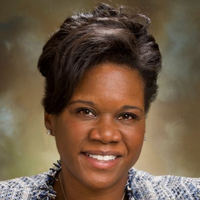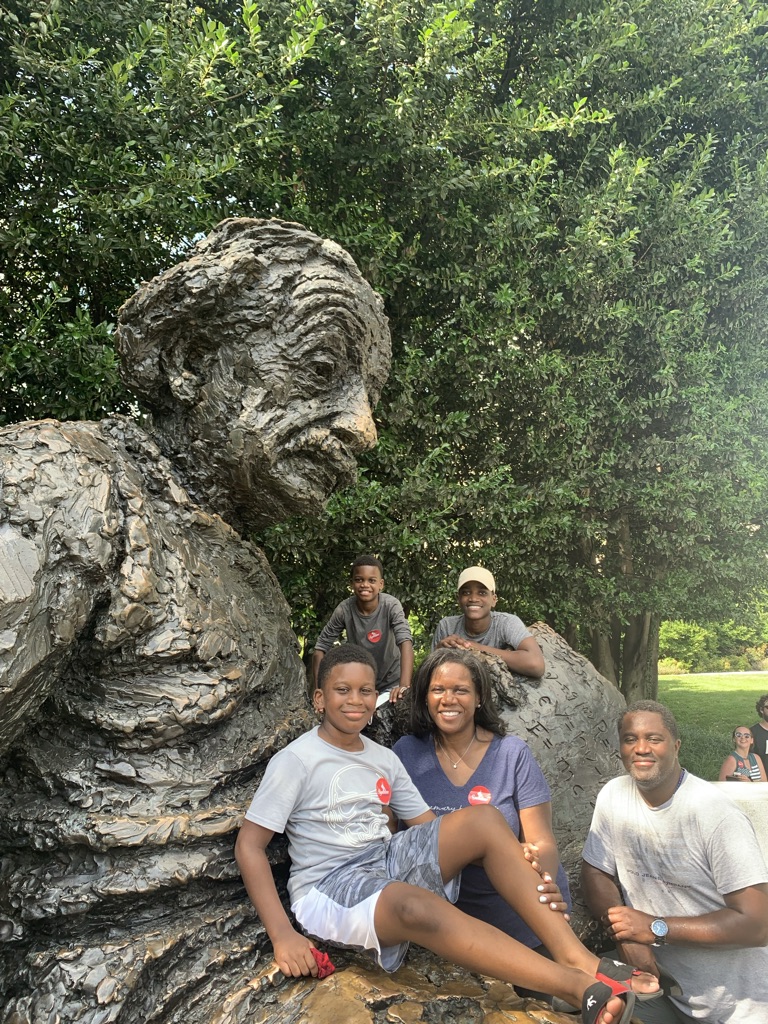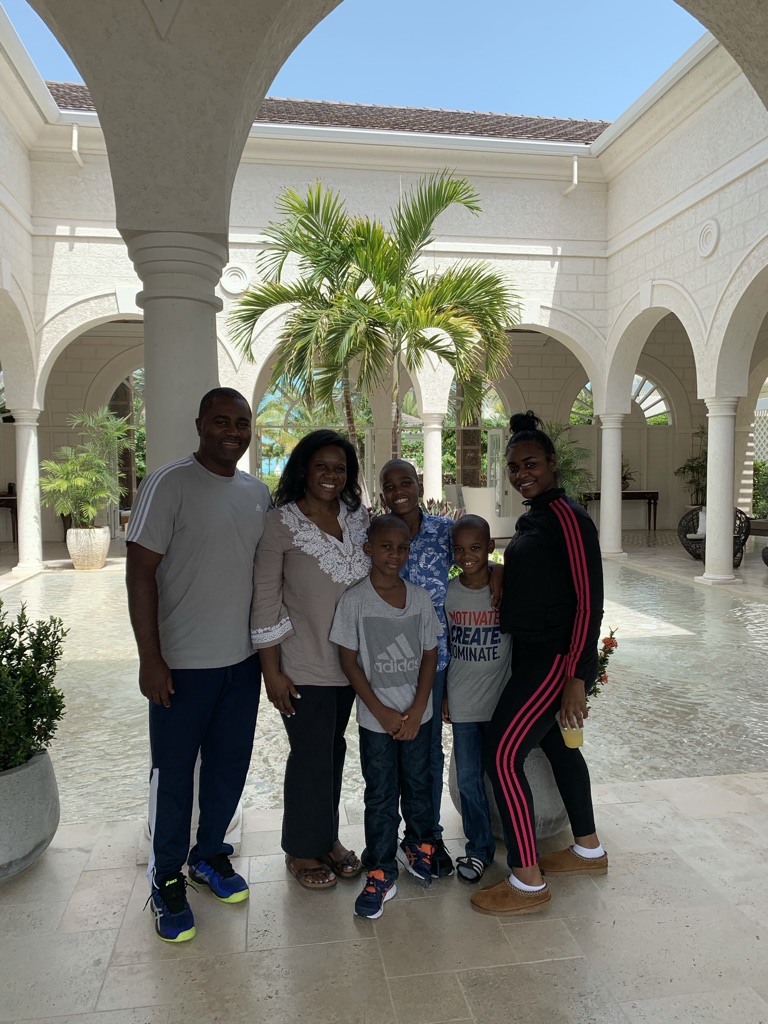 The national theme for Women’s History Month this year focuses on women providing healing and hope throughout time. At UAB, our Academic Medical Center (AMC) is composed of hardworking and inspiring women who go beyond their calls of duty, driven by passion to deliver hope and healing every day. These women are shattering the glass ceiling, becoming “firsts” in their field, and making life-saving discoveries.
The national theme for Women’s History Month this year focuses on women providing healing and hope throughout time. At UAB, our Academic Medical Center (AMC) is composed of hardworking and inspiring women who go beyond their calls of duty, driven by passion to deliver hope and healing every day. These women are shattering the glass ceiling, becoming “firsts” in their field, and making life-saving discoveries.
Among them is Emergency Medicine Chair Marie-Carmelle Elie, M.D., who came to UAB less than a year ago, but has already made tremendous strides leading the Department of Emergency Medicine.
To hear Elie's journey is to feel inspired; after speaking with her, one is likely to walk away with a load of motivation to do better, to be better.
This groundbreaking physician and researcher ranks among trailblazers like Dr. Patricia Era Bath, the first woman chair of Ophthalmology at a U.S. medical school, and Dr. Alexa Irene Canady, the first Black neurosurgeon. Elie is making history right here at UAB as the first Black woman to be named a permanent chair of an academic emergency medicine department at a major American medical school.
A native of New York City, Elie says that her greatest motivation in all that she does is the patient—the individual seeking care in their most vulnerable moment.
“My patients inspire me every time I meet them,” she says. “I learn as much about the human spirit as I do tragedy. Most of my patients will never see me again, yet they share their deepest, and often scariest, crisis with me. I do my very best to develop a repertoire with them, largely by leveling the power dynamic allowing them to leverage control; this communication is critical in bridging care that allows for a smooth transition to another team. But in the brief time that my patients are with me, they are most vulnerable. And I recognize that there's a great privilege in that."
An early calling to help
When asked if she always felt a calling to Emergency Medicine, Elie says no, but she did always feel a strong passion for population health.
Her first experience serving populations happened when she was an undergraduate, where she received a scholarship to work on Vitamin A research. “My mentor and the PI on the study gave me scientific opportunities that showed me what kind of impact I could have,” she recalls.
“One of our major studies involved a protocol for measuring Vitamin A in humans. We had a cohort of women who were HIV positive and were transmitting the virus their infants in pregnancy prior to birth. I was asked to look at their vitamin levels based on earlier associations of low Vitamin A and transmission in this cohort,” she says. “My findings refuted the specific link preventing a global intervention from being established; and importantly was the first time that overall nutrition was considered a major factor in passing HIV on to children.”
This experience taught Elie she could make an impact. “Being part of a team that answers a critical question and proposes a potential intervention to help populations was extremely powerful to me at the time.”
This experience taught Elie she could make an impact. “Being part of a team that answers a critical question and proposes a potential intervention to help populations was extremely powerful to me at the time.”
Navigating hardships in training
Elie’s journey to becoming the first Black woman to be named a permanent chair of an academic emergency medicine department at a major American medical school was no walk in the park. In fact, she attests that “from day one it was hard.”
"I was immediately questioned when I arrived, which never happened in undergraduate. Maybe I wasn't aware of it, I don't know. But my peers would question me as to why I was there—what I was doing."
She elaborates that it became evident, very quickly, that her peers’ reservations about her were rooted in the color of her skin. “I started feeling like I needed to explain myself—to say ‘this is why I am here.’ Or, tell people that I had already done research and was qualified to be in medical school.”
There were not many people who looked like her in leadership, which fueled her to join a student leadership group, eventually becoming president of that group. "I was able to work with women and underrepresented students, like LGBTQ+, those with religious differences, race, et cetera. It allowed me to lead and provided a framework to observe."
Similarly, in her residency, she became chief resident. Elie remembers her residency program director, Lynne Richardson—a Black woman whom Elie calls exceptional: “She was all the things I wanted to be. She was doing early CPR work in Harlem. She was practicing social Emergency Medicine. She inspired me to pursue research professionally.”
Observing this type of leadership pushed Elie to think big. “Although I had other leadership positions before, it was the first time I realized there was a place for me in shaping culture and patient care in a different way.”
 Elie and familyIn the trenches with patients
Elie and familyIn the trenches with patients
When she sought advice on practicing Emergency Medicine as a specialty, she was discouraged from pursuing it. Several told her it would not be suitable for a longitudinal career. The field was "too young" and "scrappy." Emergency Medicine was only first established as a specialty in the 1970s.
Elie took it upon herself to speak with leaders in Emergency Medicine directly and found that, contrary to what others were telling her to think, the specialty was precisely where she wanted to be. It met her desire to hold purpose in her work while bridging her goals to help large populations.
"The thing about Emergency Medicine is that it’s the only agnostic specialty for patients-accepting regardless of who you are. Patients can step into that space and get the care they need without worrying about their age, race, financial status et cetera. You come into my department, and you know that you will get taken care of," she says deliberately. "Nothing separates care and the patient in the Emergency Department."
Daily, Elie and the team she leads witness the most tragic cases of a person's life—heart attack, stroke, accidents. "I realized I wanted to be in the trenches with patients."
Leading with advocacy for empowerment
While talking with Elie, it is clear that the same honor and purpose she feels for vulnerable patients traverses into her role as a leader. “I place so much value in what I do,” she says.
One of her biggest goals as a leader is to rethink physician culture at a department level and, institutionally, work on the culture of leadership. “One of the most important facets of leading health care teams is to help physicians better facilitate how they take care of patients.”
Her leadership style advocates for health care workers to empower themselves. “I don’t want to just empower them. I want to show them how to empower themselves,” she says.
Too, it’s important to Elie that more representation be visible throughout health care leadership. She hopes to facilitate opportunities for women who look like her, as well as other underrepresented groups, to take on positions like hers. “Barriers must be broken down,” she says with conviction.
Assigning our own value
When asked what is one thing that surprised her along the way to becoming the "first" in her field, she answers quickly: "I have been surprised by the degree to which people assign their values by how they are perceived by others, instead of how they see themselves."
“I am working in a space where the specialty is very young, and if [physicians and health care workers] place a lot of value in what other people think, versus in their own purpose, then there is a lack of definition about who they are,” she says.
Understanding that individuals tend to place more value in what others think than what they, themselves, think about who they are has been a revelation for Elie. "This has been a discovery that I have had to work around and learn how to influence and lead."
“For women, it’s especially relevant because of the socialization of the gender. We must be intentional about making sure women are represented everywhere including in leadership positions,” she expresses.
To Elie, helping others understand their identity is key to a better future of health care culture.
Adjusting to life in Birmingham
As for the culture at UAB, Elie admittedly falls into the bucket of those who had misconceptions about UAB and Birmingham before coming here. “I was very surprised by the culture, and openly admit that I hadn’t considered that it would be as progressive as I have discovered it to be” she says.
Elie has witnessed UAB for its intentional efforts in both educating those in positions of leadership and recruiting diverse members to the student body, faculty, as well as leadership.
“I am seeing things happening here at UAB that are not happening anywhere else in the country,” she exclaims. The open dialogue and willingness to have honest conversations across our AMC align with Elie's evolving health care culture values.
And while she was more than surprised by UAB, she laughs when she says the biggest surprise is the food in Birmingham!
 Elie and familyMoving across the country was not a decision her family took lightly. Her husband, a pro tennis coach, and two children had a family vote when the Emergency Medicine chair position presented itself.
Elie and familyMoving across the country was not a decision her family took lightly. Her husband, a pro tennis coach, and two children had a family vote when the Emergency Medicine chair position presented itself.
Her kids are outdoorsy, and as a family, they enjoy traveling when they can. Currently, they have a “book of the week” family discussion where they dissect books and talk about them.
Elie is rooted in family. “I have to take a moment to brag on my husband,” she says. “He is super—very encouraging. He gets what leadership looks like. He understands the male dominated construct in leadership and sees women's journeys; he is willing to call things out for me in a way I can't call out myself because I am not a man. It's truly a great partnership."
Women: find your joy
When asked about her advice to women during Women’s History Month, especially her advice to women who look like her, she immediately responds: “Find your joy. First, the most important person to please and be aware of is yourself. How do you perceive yourself? Define that first. Know that unequivocally. Know who you are. And part of knowing who you are is knowing what makes you happy.”
Elie says that right now, figuring out our place in a world that is suffering is essential. "And it's important to balance our place in the world against knowing who we are. It's a fickle balance, but we need to be thinking about this—so that we all benefit."